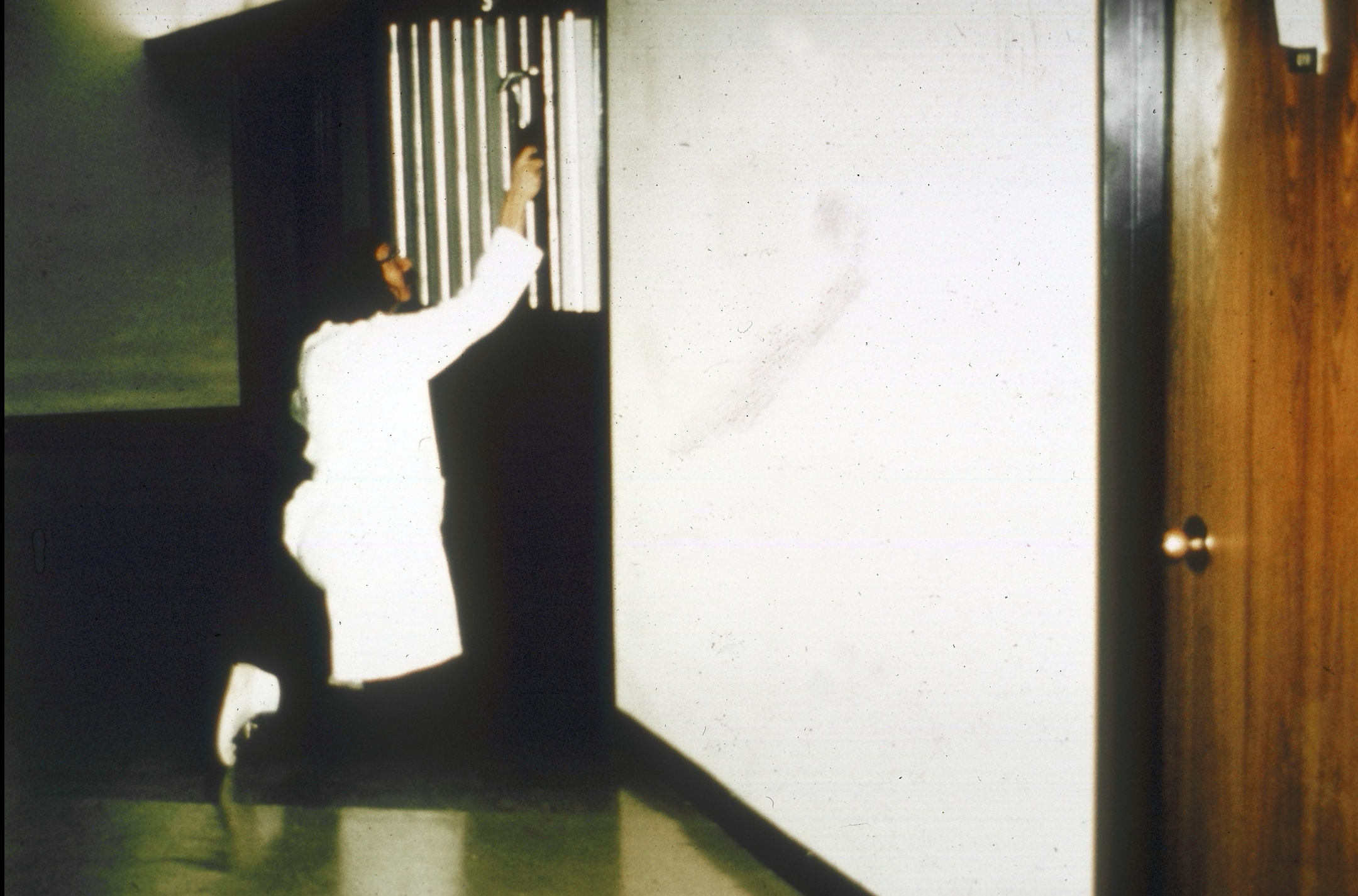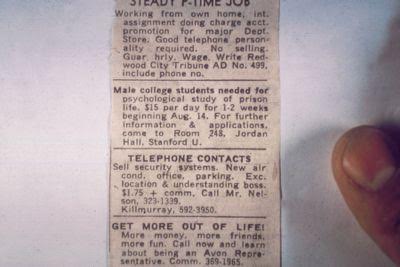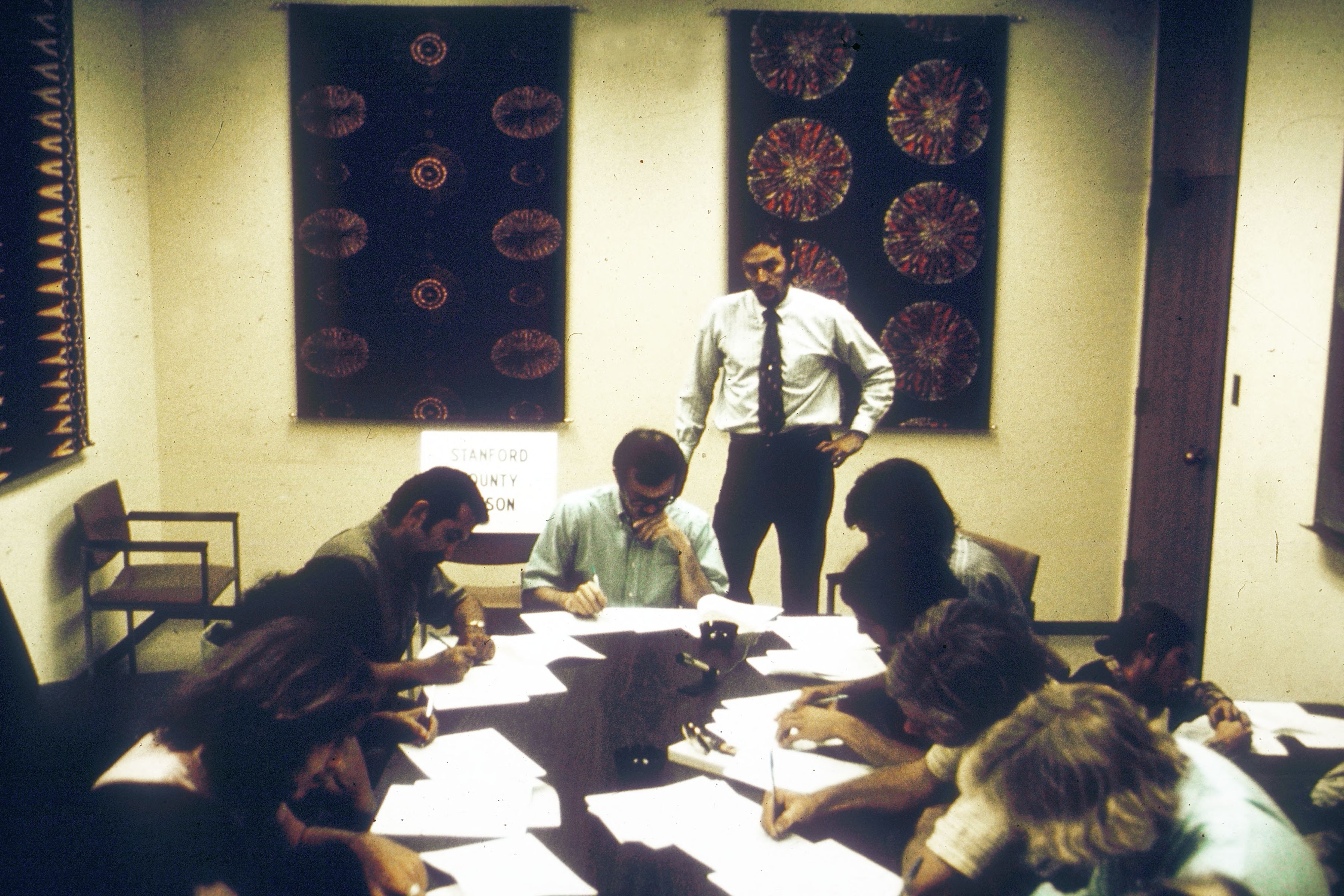Thesis
After World War II, many psychologists began to study the effects of situational factors on behavior. As a result, Phillip Zimbardo decided to conduct his own trial, leading him to create the Stanford Prison Experiment. However, this study appeared to be extremely immoral over time, as it violated prisoners' human rights. On top of this, Zimbardo also violated many ethical responsibilities when conducting his experiment. While Zimbardo had good intentions, he allowed the guards to abuse and dehumanize the prisoners. This ultimately led to a breaking point within the study, where it became clear that Zimbardo could no longer continue his experiment. However, Zimbardo was able to use the results of his study to lead to reform within the prison system and within future psychological studies.

Phillip Zimbardo, bulding prison, 1972.

Phillip Zimbardo, ad for prison study, 1972.

Phillip Zimbardo, prisoners taking pre tests, 1972.